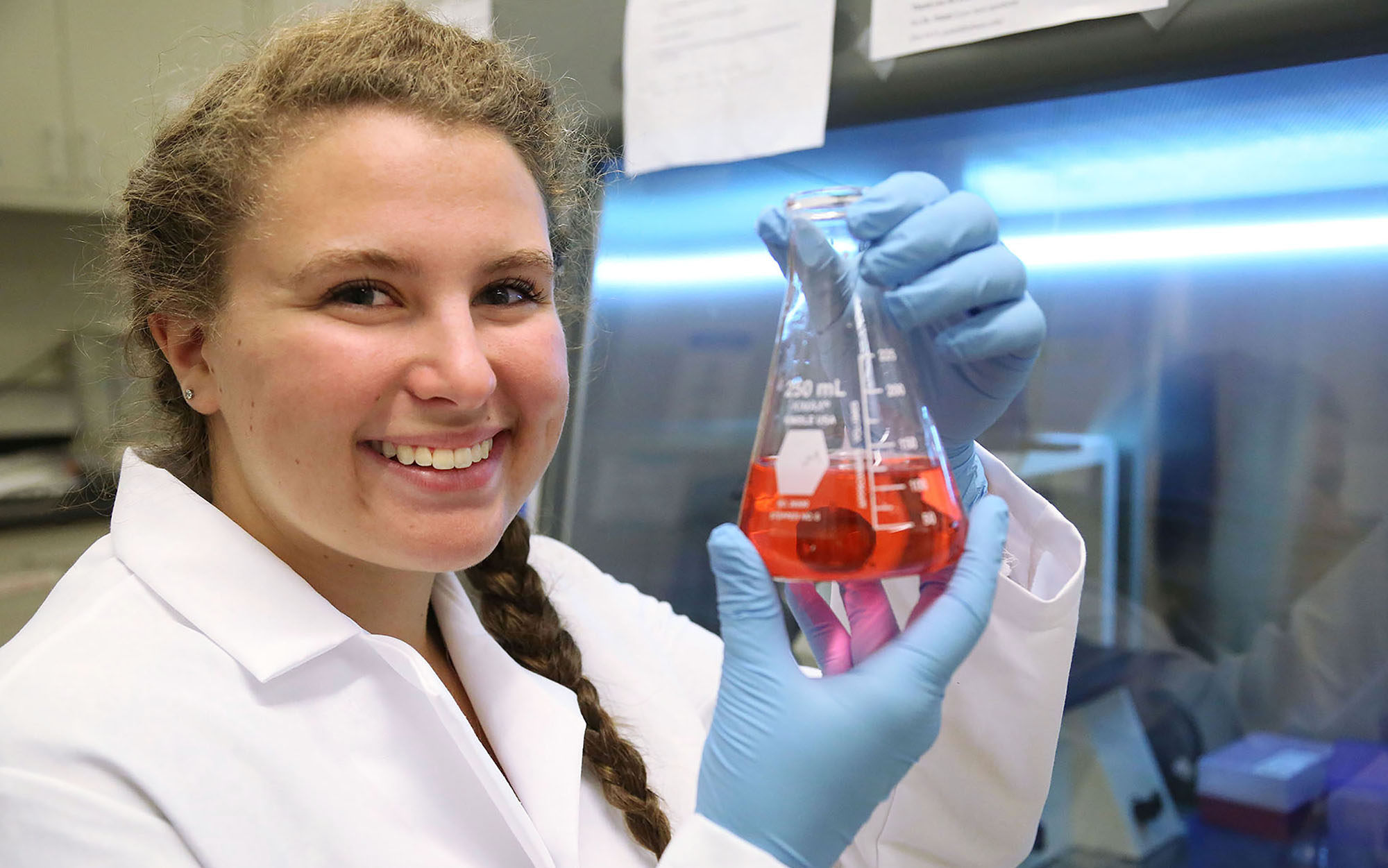Neural disease and cancers are some of life’s greatest mysteries, but like any great mystery, there are those who are compelled to solve them. That is what drives Julianna Bourgeous, a nanoscale science major focusing in nanobioscience at SUNY Poly’s Colleges of Nanoscale Science and Engineering (CNSE) who is enthusiastic about the future she plans to play a key role in.
“The prospect of being able to rise to challenges and help to solve key societal problems is something that I embrace willingly,” she says. “The nanosciences are truly a new frontier but with them also comes a new set of challenges and barriers that are going to have to be conquered in order to achieve the true societal impact”.
With all the choices she had before her, one might think it was difficult for Julianna to have found the college that was right for her. Eager to be at the forefront of new developments and research, Julianna says the decision to enroll at SUNY Poly’s CNSE was easy.
“CNSE is home to nearly 30 different research centers and programs, all of which help to further propel our technology into the future,” she says. “Also, CNSE makes a conscious effort to integrate research with industry, as is proven by the partnerships that can be found between the university, the industries that use its facilities, and the government. Not many can say that their college allows for such stimulating and inviting class environments.”
With SUNY Poly’s Colleges of Nanoscale Science and Engineering being part of the Global 450 Consortium, a group of five leading international companies housed at SUNY Poly’s CNSE are working to create the next generation of computer chip technology, Julianna says the opportunities to get involved in research early on in one’s academic career are “extraordinarily abundant.”
It’s through that immediate, hands-on involvement in research at SUNY Poly’s CNSE that Julianna believes propels students further in their fields of expertise while simultaneously helping them develop and enhance the skills needed to stay one step ahead in those fields.
Driven to make the world a better place by unlocking the mysteries of disease that plague and baffle humankind, Julianna gravitates toward what she says is a better understanding of the fundamental building blocks that make us who we are.
“By focusing on combining aspects of nanobiosciences with innovations in biology we will be able to get a better understanding of the various human biosystems. This, in turn, will allow us to effectively make new biomedical devices, biosensors, or reach biomimetic frontiers,” she says. “I find diseases to be intriguing, especially in the way they function and alter the normal environment of the body”.
With the world’s latest technology at her fingertips at SUNY Poly’s CNSE, Julianna continues her research into biological applications of nanotechnology, hoping to carry that research well beyond her days in the classroom and lab.
“I have great hopes of continuing to work in the field of nanobiosciences and to significantly contribute to the biomedical field.”
